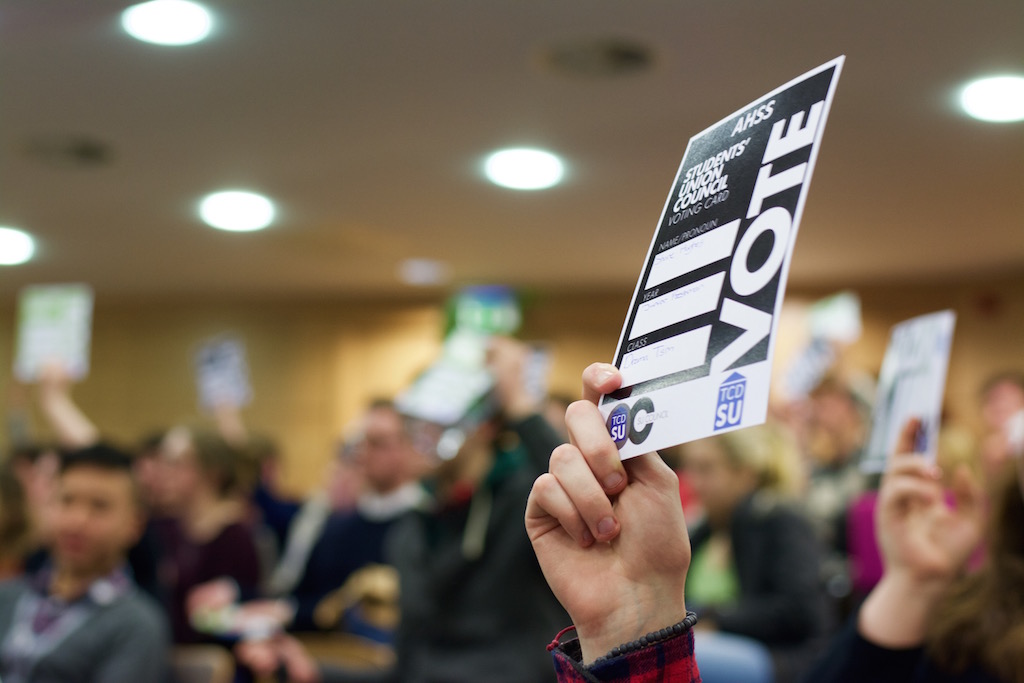Trinity College Dublin Students’ Union (TCDSU) plan to review the union’s constitution to help bring it up to date, with hopes of bringing any proposed changes to a referendum in February.
Speaking to The University Times, TCDSU President Kevin Keane said that this process would not be a “sabbat-led project”. The union, he said, will advertise the opportunity to the wider student body, allowing people to get involved in the future of the union.
He also emphasised that the union is still in the very early stages of reviewing the constitution. It plans to run focus groups and forums with students, which will feed into various aspects of the union’s strategic plan, before the proposed changes are put before students through a referendum. Keane said that he wants to “make the union work the way students want it to work” and believes that any changes made will allow it to better cater towards the needs of students.
Keane was clear that the changes proposed over the coming months will not lead to a fundamental restructuring of the constitution, but will instead involve “ironing out the creases”. The document, now seven years old, does not reflect a number of major changes that the union has implemented since its inception, such as the formation of the Academic Senate.
Introduced in early 2017, the Academic Senate was established in an effort to improve efficiency within the union and to reduce the number of responsibilities of class representatives. While it has not yet been added to the constitution, a referendum can take place after the two-year academic trial period ends in May 2019. Proposing the motion at a council meeting, then-Education Officer Dale Whelehan said that the senate would aid the resolution of academic issues quickly while simultaneously making the role of school convenor more efficient.
This planned review is in line with Keane’s key manifesto points, in which he vowed to empower the student body and improve the accessibility of the union. At multiple hustings last year, Keane promised to increase student engagement with the union and tackle the perception of the union as inaccessible. Through advertising the chance to get involved in this process, he hopes to improve the quality and quantity of interactions between the union and students over the course of the year. Expert advice to accompany input from students may also be sought after the working groups conclude. The constitution, according to Keane, is “a living document” and as such it must be updated regularly to keep up with changes introduced by TCDSU.
Speaking to The University Times, former TCDSU Education Officer Jack Leahy spoke about the importance of getting input from multiple sources including past officers, current students and the current sabbatical officers themselves. Leahy carried out the most recent review of the union’s constitution in late 2013, which included an amendment that led to the separation of the roles of Editor of The University Times and TCDSU Communications Officer. Pointing out that the constitution is particularly “robust and well thought through”, Leahy praised the current officers for the planned review citing the union’s evolution over the past number of years.
Leahy added that it was a “real struggle” to get students involved in the process, but that it was vital to do so. This was also one of the main issues that he had with his own review, he said.







